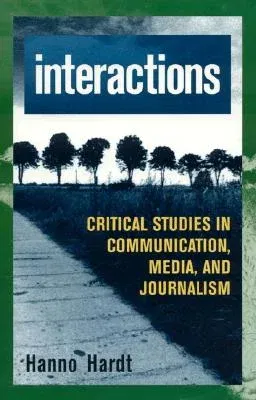Hanno Hardt
(Author)Interactions: Critical Studies in Communication, Media, and JournalismHardcover, 25 June 1998

Qty
1
Turbo
Ships in 2 - 3 days
In Stock
Free Delivery
Cash on Delivery
15 Days
Free Returns
Secure Checkout

Part of Series
Critical Media Studies: Institutions, Politics, and Culture
Part of Series
Critical Media Studies (Hardcover)
Print Length
272 pages
Language
English
Publisher
Rowman & Littlefield Publishers
Date Published
25 Jun 1998
ISBN-10
0847688879
ISBN-13
9780847688876
Description
Product Details
Author:
Book Format:
Hardcover
Country of Origin:
US
Date Published:
25 June 1998
Dimensions:
23.52 x
17.93 x
2.08 cm
ISBN-10:
0847688879
ISBN-13:
9780847688876
Language:
English
Location:
Lanham, MD
Pages:
272
Publisher:
Series:
Weight:
530.7 gm